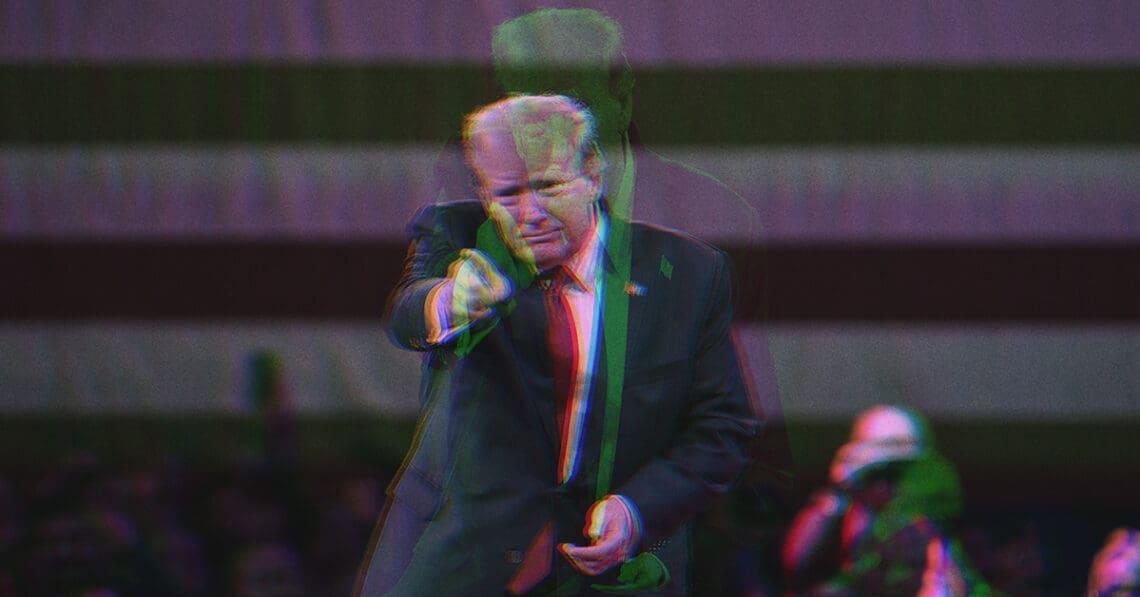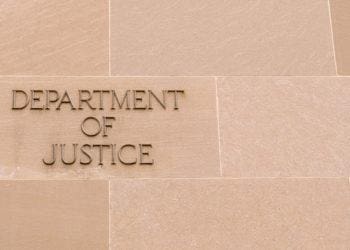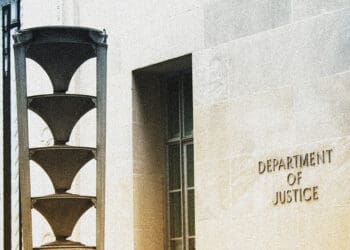(Final update: 4:29 p.m. ET Nov. 8, 2024)
In a shocking turnaround, Republican Donald Trump was swept back into the Oval Office in a wave of voter anxiety about the economy, securing a decisive victory over Democratic Vice President Kamala Harris. Republicans were also able to take back control of the Senate, though outcomes of House of Representatives races were unknown a few days after the election.
Trump’s fiery campaign hinged largely on grievance politics and culture war issues, though it seems much of his economic messaging resonated with voters who have been squeezed for years by rising prices and high interest rates.
Any change in the party of the White House occupant poses potential risk for business, but a return to power of the unpredictable Trump could be even more consequential. For example, his pledge to slap broad tariffs on imported goods could trigger a global trade war that leaves American businesses, workers and consumers in the crosshairs and rattles supply chains. And like most other Republicans, Trump is a climate denier, calling manmade climate change a hoax; it’s expected he would boost production of fossil fuels and pull the U.S. from the Paris climate agreement, which could put corporate sustainability promises on uneasy footing.
Changing enforcement priorities
One of the first and most obvious effects of Trump’s victory on corporate America will be his appointments to various enforcement roles, including posts in the DOJ, SEC, the Office of the Comptroller of the Currency, the FTC and the Office of Civil Rights within the Department of Health and Human Services.
If he selects bureaucrats, compliance teams may see little effect, but if his choices lean toward the eccentric — Trump has reportedly made promises to bombastic figures like Elon Musk and Robert F. Kennedy Jr. — corporate enforcement trends could become quite unpredictable.
“[If] confused and delusional Trump is in charge, we could end up with kooks who see their sole mission as ramming through right-wing beliefs no matter what the cost to others or how nonsensical those policies are in the real world,” Radical Compliance editor Matt Kelly wrote in a Wednesday morning post. “Think someone like Vivek Ramaswamy running the SEC, the failed biotech entrepreneur and conspiracy theorist who was a primary candidate against Trump in 2024 before dropping out and endorsing him.”
Indeed, the expected changes at the top of agencies will likely drive changes further down the line, said Tonya Grindon, a corporate finance and governance attorney with Baker Donelson in Nashville.
“Trump emphasized limited government during his first term, and we should expect for him to double down on these principles,” Grindon said. “The current SEC chairman was appointed by Biden, so he may likely step down to pave the way for Trump’s pick to run the SEC. A new SEC chair would appoint a new director of division of enforcement, who would have different priorities, most likely including, based upon past comments from the Republican-appointed commissioners, less aggressive enforcement of penalties and less use of novel legal theories.”
Before he became president the first time, Trump had decried the FCPA as “ridiculous” and a “horrible law” that harms U.S. businesses; but the SEC under Trump did not stop bringing FCPA enforcement actions, nor did the DOJ.
Trump’s stated interests may drive changes in regulatory focus, said Arnall Golden Gregory partner Allison Raley.
“One key regulatory shift with a Trump administration would likely stem from his longstanding support for blockchain and digital asset technology,” Raley said. “This stance could drive not only changes in regulatory enforcement but also a move toward greater regulatory clarity in the digital assets space. For finance professionals, this would mean a renewed focus on staying informed and educated on blockchain technology to effectively navigate the evolving landscape.”
New rules and guidelines that emerged under the Biden Administration also could be on the chopping block, including the FTC’s noncompete ban, which has been tied up in court, and new merger review guidelines that were largely unpopular on Wall Street.
“The 2023 merger guidelines were very hostile to mergers and acquisitions,” McDermott Will & Emery partner Jon Dubrow told Reuters.
Increased attention on China could be the biggest immediate change, said King & Spalding counsel Mike Galdo.
“While a Trump administration is unlikely to halt the Biden administration’s focus on trade enforcement related to Chinese semiconductors, artificial intelligence, rare earths minerals and pharmaceutical development, shifting priorities within law enforcement may also result in additional investigations on China’s investment and influence in the United States and a reintroduction of efforts like the now disbanded China Initiative that investigated Chinese influence and espionage in U.S. research universities.”
DEI & ESG programs
Trump’s victory also could inject a degree of uncertainty into corporate ESG and DEI programs, which have been under assault in recent years. A wave of state laws, for example, have sought to eliminate ESG as a factor in investment decisions, and Trump’s open hostility toward corporate sustainability and DEI issues could intensify, forcing business leaders to make challenging decisions.
Many companies will continue their programs, though they may not be as forward-facing about them, Grindon said.
“Given the hostility from the Trump administration, most likely, companies that consider these initiatives important will need to resort to greenhushing or ‘radio silence’, i.e., even if they promote these initiatives internally, they will not publicize their ESG strategies,” she said. “That way, they avoid the ire of Republican lawmakers, like when the Republican senators sent letters to law firms with ESG initiatives in 2022 threatening investigations of them and their clients for antitrust violations due to ESG collusion. Best way to avoid these matters is to stay under the radar.”
Regardless of Trump 2.0 administrative actions, some elements of corporate ESG programs may be mandated by other authorities. In the European Union, for example, a new directive requires large companies operating in the EU to address human rights and environmental effects in their supply chains. While the Corporate Sustainability Due Diligence Directive (CSDDD) is aimed at organizations in the EU, it will still affect many companies in the U.S. with EU connections.
Still, don’t expect companies to make dramatic shifts to their standard operations, Raley said.
“While any political shift brings adjustments, the core decision-making process for corporate expansion, especially internationally, will likely remain consistent for most companies,” Raley said. “Firms are already accustomed to navigating changing policies and geopolitical landscapes, which means they’re well-prepared to adapt as needed. Ultimately, strategic priorities around international growth are unlikely to waver significantly, even amid regulatory changes barring any new sanctions which would affect the same.”
What now?
Trump, a convicted felon who is expected to be sentenced this month in his New York hush money case, hardly cuts a figure of ethics, though his electoral win makes it less likely he’ll even have to face the other cases pending against him, which include federal and state charges.
“It clearly paid off to aggressively push to delay these cases as long as possible,” Jessica Levinson, a constitutional law professor at Loyola Law School, told CNN.
Corporate teams who found Trump’s first administration an ethical minefield should gird themselves for an even tougher time over the next four years, Kelly says.
“Trump is even more divisive; people are even more polarized and convinced of their righteousness,” he wrote. “So what happens to corporate organizations when that social mess collides with a Trump agenda that horrifies half the country — and the highly skilled, highly productive half, to boot? … [M]undane headaches that will get worse under Trump. They will come for compliance, legal and HR teams sooner rather than later, and good luck fostering a supportive ethical culture in that world.”



 Jennifer L. Gaskin is editorial director of Corporate Compliance Insights. A newsroom-forged journalist, she began her career in community newspapers. Her first assignment was covering a county council meeting where the main agenda item was whether the clerk's office needed a new printer (it did). Starting with her early days at small local papers, Jennifer has worked as a reporter, photographer, copy editor, page designer, manager and more. She joined the staff of Corporate Compliance Insights in 2021.
Jennifer L. Gaskin is editorial director of Corporate Compliance Insights. A newsroom-forged journalist, she began her career in community newspapers. Her first assignment was covering a county council meeting where the main agenda item was whether the clerk's office needed a new printer (it did). Starting with her early days at small local papers, Jennifer has worked as a reporter, photographer, copy editor, page designer, manager and more. She joined the staff of Corporate Compliance Insights in 2021. 








